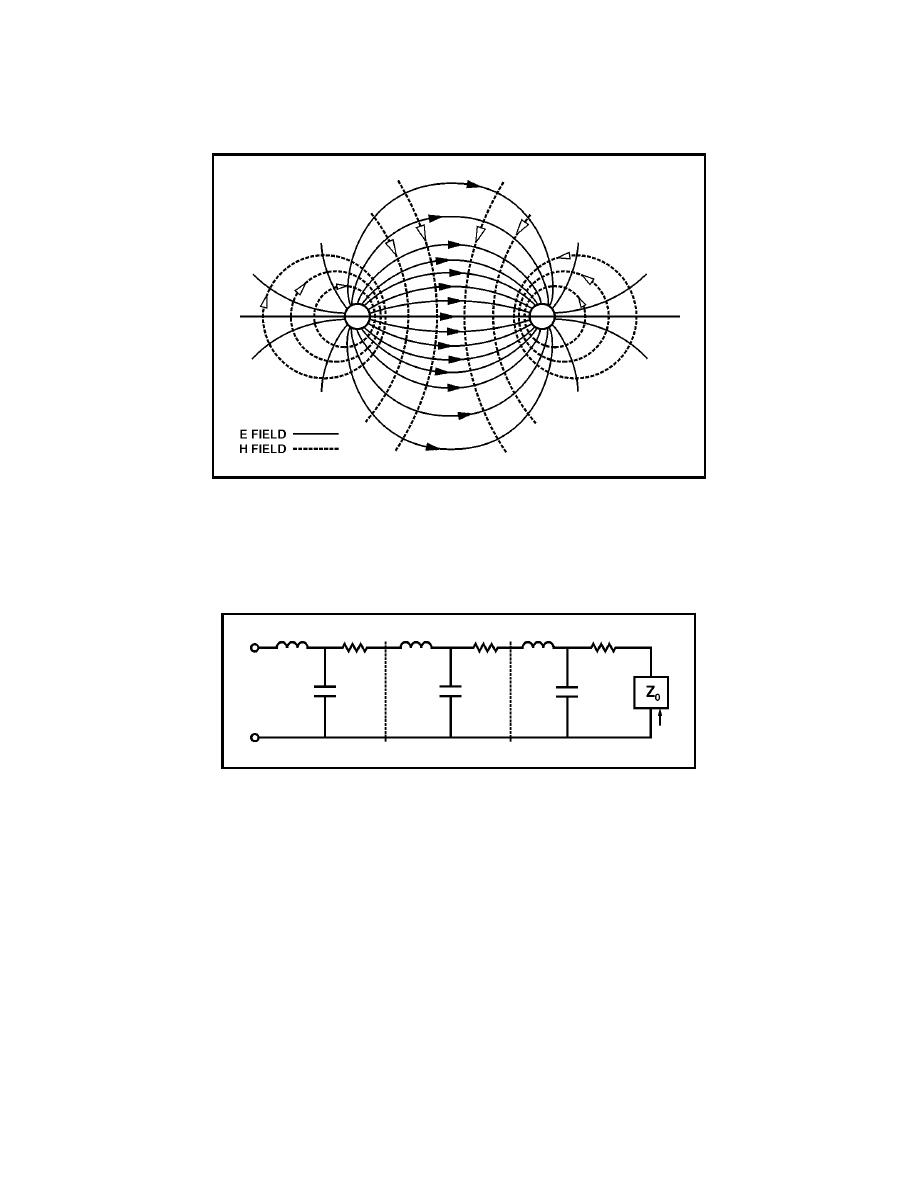
TC 9-64 _________________________________________________________________________
Figure 3-Sum 11. Fields between Conductors
line. For maximum transfer of electrical power, the characteristic impedance
and load impedance must be matched.
Figure 3-Sum 12. Characteristic Impedance
The velocity at which a wave travels over a given length of transmission line
can be found by using the formula:
A transmission line that is not terminated in its characteristic impedance is
said to be finite.
When DC is applied to an open-ended line, the voltage is reflected back from
the open end without any change in polarity, amplitude, or shape. Current is
reflected back with the same amplitude and shape but with opposite polarity.
When DC is applied to a short-circuited line, the current is reflected back
with the same amplitude and polarity. The voltage is reflected back with the
same amplitude but with opposite polarity.
When AC is applied to an open-end line, voltage is always reflected back in
phase with the incident wave and current is reflected back out of phase.
3-52



 Previous Page
Previous Page
